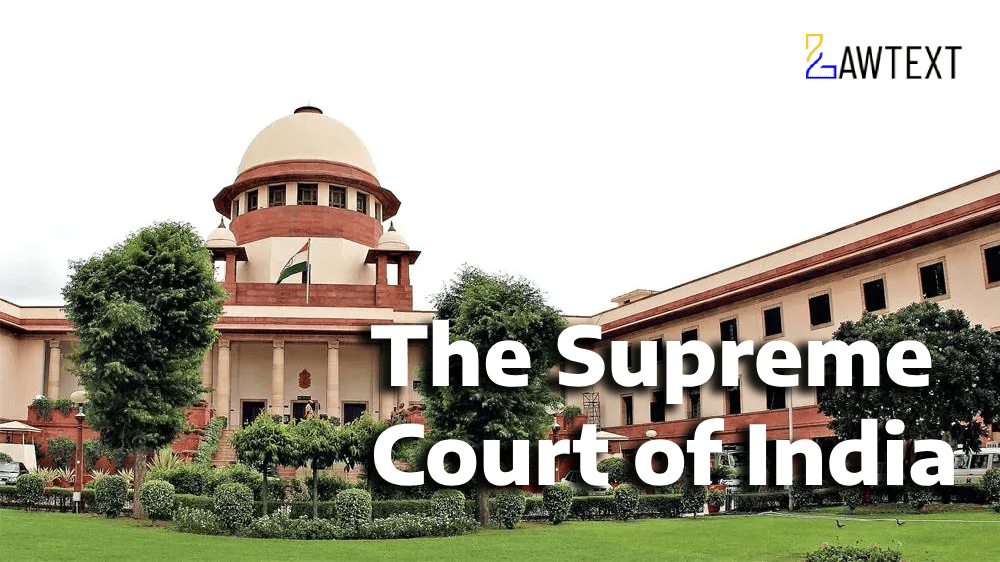

The Supreme Court of India, in a significant ruling, addressed the application of retrospective taxation following its earlier judgment in the Mineral Area Development Authority v. Steel Authority of India case. The Court invoked the doctrine of prospective overruling, acknowledging the long-standing reliance on the overruled precedent and aiming to prevent undue hardship and economic disruption. The judgment underscores the Court's power under Article 142 to tailor the retrospective effect of its decisions, thereby protecting past transactions and promoting a smooth legal transition.
The Mineral Area Development Authority v. Steel Authority of India case involved a nine-Judge Bench of the Supreme Court, which overruled the decision in India Cement Ltd. v. State of Tamil Nadu. The earlier decision had shaped the legal landscape for 35 years, influencing tax legislation under Entries 49 and 50 of List II of the Seventh Schedule.
For Prospective Overruling: Senior legal representatives, including the Attorney-General, argued that retrospective application would disrupt settled commercial transactions and burden consumers. They emphasized that entities had relied on the previous legal position in their financial decisions.
Against Prospective Overruling: Representatives for the States contended that the doctrine should not apply to tax legislation, warning that it would create unjust and discriminatory situations among different states.
The Court explored the doctrine of prospective overruling, which allows a court to overrule a precedent but apply the new ruling only to future cases. This doctrine was first recognized in India in the Golak Nath v. State of Punjab case and has since been applied to balance justice with practicality.
The Supreme Court, using its discretion under Article 142, decided to apply the Mineral Area Development Authority judgment prospectively. This approach prevents the reopening of past transactions and avoids economic disruption while affirming the Court's power to adapt the law to contemporary needs without creating undue hardship.
Citation: 2024 LawText (SC) (8) 143
Case Number: Civil Appeal Nos. 4056-4064 of 1999 With Civil Appeal No. 7937 of 2019 With Writ Petition (Civil) No. 512 of 2018 With Civil Appeal No. 7938 of 2019 With Civil Appeal No. 7936 of 2019 With Civil Appeal No. 6221 of 2008 With Civil Appeal No. 5250 of 2019 With Writ Petition (C) No. 729 of 2019 With Writ Petition (C) No. 1029 of 2019 With Special Leave Petition (C) No. 16028 of 2021 With Civil Appeal No. 4286 of 2023 With Civil Appeal No. 5682 of 2007 With Civil Appeal No. 1295 of 2008 With Civil Appeal No. 874 of 2013 With Civil Appeal Nos. 8269-8271 of 2013 With Civil Appeal No. 8268 of 2013 With Civil Appeal No. 8267 of 2013 With Civil Appeal No. 6135 of 2013 With Civil Appeal No. 8272 of 2013 With Civil Appeal No. 9458 of 2013 With Special Leave Petition (Civil) No. 18600 of 2013 With Civil Appeal No. 4332 of 2013 With Civil Appeal No. 5329 of 2002 With Civil Appeal No. 4993 of 2006 With Civil Appeal No. 8273 of 2013 With Civil Appeal No. 8274 of 2013 With Civil Appeal No. 3869 of 2014 With Civil Appeal No. 2632 of 2013 With Civil Appeal No. 14685 of 2015 With Civil Appeal No. 6784 of 2014 With Writ Petition (Civil) No. 376 of 2015 With Civil Appeal No. 10082 of 2016 With Civil Appeal No. 886 of 2017 With Civil Appeal No. 4588 of 2017 With Civil Appeal No. 205 of 2017 With Civil Appeal Nos. 5728-5729 of 2018 With Civil Appeal Nos. 4722-4724 of 1999 With Civil Appeal No. 5333 of 2002 With Civil Appeal Nos. 5335-5336 of 2002 With Civil Appeal No. 5332 of 2002 With Civil Appeal No. 1352 of 2005 With Civil Appeal No. 1883 of 2006 With T.P. (Civil) No. 722 of 2006 With Civil Appeal No. 4745 of 2006 With Civil Appeal No. 4990 of 2006 With Civil Appeal No. 5599 of 2006 With Civil Appeal No. 5649 of 2006 With Civil Appeal No. 378 of 2007 With Civil Appeal No. 665 of 2007 With Civil Appeal No. 1180 of 2007 With T.P. (Civil) No. 481 of 2007 With T.P. (Civil) No. 906 of 2007 With Civil Appeal No. 3401 of 2008 With Civil Appeal No. 3400 of 2008 With Civil Appeal No. 3402 of 2008 With Civil Appeal No. 8311 of 2011 With Civil Appeal No. 4293 of 2012 With Civil Appeal No. 2055 of 2009 With T.P. (Civil) No. 951 of 2006 With Civil Appeal No. 4991 of 2006 With Civil Appeal No. 4992 of 2006 With Special Leave Petition (Civil) No. 763 of 2007 With Special Leave Petition (Civil) No. 15900 of 2007 With Civil Appeal No. 3403 of 2008 With Civil Appeal No. 98 of 2009 With T.P. (Civil) No. 613 of 2009 With T.P. (Civil) No. 626 of 2009 With Civil Appeal No. 4479 of 2010 With Civil Appeal No. 4478 of 2010 With Civil Appeal No. 3643 of 2011 With Civil Appeal Nos. 4710-4721 of 1999 With Civil Appeal No. 2174 of 2009 With Civil Appeal No. 6497 of 2008 With Civil Appeal No. 6498 of 2008 With Civil Appeal No. 6137 of 2008 With Civil Appeal No. 7397 of 2008 With Civil Appeal No. 96 of 2009 With Civil Appeal No. 6499 of 2008 With Civil Appeal No. 97 of 2009 And With Special Leave Petition (Civil) No. 26160 of 2008
Date of Decision: 2024-08-14
Case Title: Mineral Area Development Authority & Anr. Versus M/S Steel Authority of India & Anr Etc.
Before Judge: [Dr Dhananjaya Y Chandrachud CJI., Hrishikesh Roy J., Abhay S Oka J., J B Pardiwala J., Manoj Misra J., Ujjal Bhuyan J., Satish Chandra Sharma J., Augustine George Masih J.]
Appellant: Mineral Area Development Authority & Anr.
Respondent: M/S Steel Authority of India & Anr Etc.